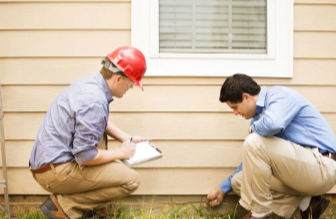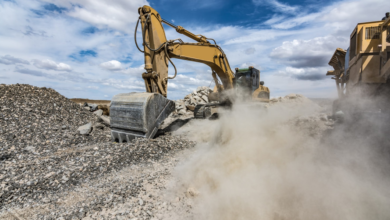DIY vs Professional: Home Inspection Services Explained

Buying a home is one of the biggest investments most people will ever make. It’s exciting, but it can also be stressful—especially when it comes to ensuring the property is safe, functional, and worth the price you’re paying. That’s where a home inspection comes in.
A home inspection helps buyers (and sometimes sellers) uncover hidden problems, understand the true condition of a property, and make informed decisions. But here’s the question many people ask: Can I do it myself, or do I really need a professional?
This article will break down the key differences between DIY home inspections and professional home inspection services, explaining the pros, cons, and situations where each approach makes sense. By the end, you’ll know which route is best for your situation—and why.
Why a Home Inspection Matters
Before diving into DIY vs professional, let’s revisit why home inspections are so important:
- Financial protection: Identifying issues before closing can save thousands in repairs.
- Negotiation leverage: Buyers can request repairs or price reductions based on inspection findings.
- Safety: Hidden hazards like faulty wiring, mold, or structural problems can endanger your family.
- Maintenance planning: Inspections help homeowners budget for upcoming repairs and upkeep.
Skipping or rushing through a home inspection can leave you vulnerable to unexpected costs and health risks.
The DIY Approach to Home Inspection
A DIY home inspection is when the buyer (or sometimes the seller) walks through the property and evaluates its condition without hiring a certified inspector.
What You Can Do Yourself
As a homeowner or buyer, you can check for many obvious issues, including:
- Exterior: Cracks in siding, damaged gutters, poor drainage near the foundation.
- Roof (visible from the ground): Missing shingles, sagging, or moss growth.
- Windows and doors: Drafts, broken seals, or difficulty opening/closing.
- Basement: Signs of moisture, water stains, or musty smells.
- Plumbing: Leaks under sinks, slow drains, running toilets.
- Electrical: Non-functioning outlets, missing outlet covers, exposed wiring.
- HVAC basics: Furnace filters, thermostat operation, strange noises.
- Interior: Uneven floors, cracks in walls or ceilings, mold in bathrooms.
A DIY inspection can help you identify visible problems and give you a general sense of the property’s condition.
Advantages of DIY Inspections
- Cost savings: You won’t pay inspection fees, which typically range from $400–$700.
- Immediate results: You can walk through at your own pace and spot issues in real time.
- Familiarity: You may feel more comfortable understanding your future home when you personally check every corner.
- Pre-offer evaluation: A DIY walk-through before making an offer can help you decide if the property is worth pursuing.
Limitations of DIY Inspections
- Lack of expertise: Unless you’re a contractor or tradesperson, you may miss critical problems.
- No specialized tools: Thermal imaging, moisture meters, and radon detectors aren’t in most homeowners’ toolkits.
- No formal report: DIY inspections don’t produce the documentation needed for negotiations.
- Risk of bias: Emotions can cloud judgment when you’re excited about a home.
- Hidden hazards: Structural issues, electrical deficiencies, and radon gas often go unnoticed by untrained eyes.
DIY inspections are a good supplement to professional services, but they are rarely enough on their own.
Professional Home Inspection Services
A professional home inspection is performed by a trained, certified inspector who evaluates the home using established standards and specialized tools.
What Professionals Provide
- Comprehensive evaluation: Inspectors assess the structure, roof, plumbing, electrical, HVAC, insulation, ventilation, and more.
- Specialized equipment: Thermal cameras, moisture meters, and radon detectors help find issues you can’t see.
- Detailed reports: Typically 20–40 pages with photos, descriptions, and recommendations.
- Unbiased perspective: Professionals have no emotional attachment to the property.
- Local expertise: Inspectors understand region-specific issues (e.g., radon in Ottawa, freeze-thaw foundation cracks in cold climates).
Advantages of Professional Inspections
- Thoroughness: Inspectors know where to look for hidden issues.
- Credibility: Professional reports carry weight in negotiations with sellers.
- Legal protection: Inspectors carry Errors & Omissions insurance to protect clients if something major is overlooked.
- Future planning: Reports often include maintenance tips and life expectancy of major systems.
- Peace of mind: Buyers feel more confident in their investment.
Limitations of Professional Inspections
- Cost: $400–$700 is typical, with add-ons (radon, mold, sewer line) costing more.
- Time: Inspections take 2–4 hours, and you must schedule them around closing timelines.
- Not invasive: Inspectors don’t open walls, dig up pipes, or guarantee detection of every issue.
- Variability: Because Ontario doesn’t regulate home inspectors, quality can vary—choosing the right inspector is crucial.
When a DIY Inspection Makes Sense
While not a substitute for a professional, DIY inspections can be valuable in certain situations:
- Initial walk-through: Before making an offer, you can decide whether the home seems worth pursuing.
- Routine homeowner maintenance: Periodically inspect your own home to catch small issues early.
- Minor purchases: For small condos or low-risk properties, a quick DIY check may suffice—though professional inspection is still ideal.
When You Need a Professional Inspection
Professional services are essential in most home-buying scenarios, especially when:
- You’re purchasing an older home in Ottawa (with risks like knob-and-tube wiring or asbestos).
- You plan to invest a large portion of your savings.
- You’re buying in a radon-prone area.
- You need documentation for negotiations.
- You lack construction or technical expertise.
The stakes are too high to rely on DIY alone for such a significant investment.
Combining DIY and Professional Efforts
The best approach is often a combination:
- DIY first: Do your own walk-through before making an offer. Check for obvious deal-breakers like water damage, roof issues, or poor drainage.
- Hire a pro: Once you’re serious about the property, schedule a professional inspection to uncover hidden issues and provide a formal report.
- Follow-up DIY: After moving in, perform seasonal DIY checks to keep your home in good condition until the next professional inspection is needed.
This hybrid strategy balances cost savings with thorough protection.
Read Also: Why GMAT Preparation Classes Are Still the Smartest Investment
What Buyers Need to Know in Ottawa
Ottawa presents unique conditions that make professional inspections especially valuable:
- Radon risk: Ottawa has higher-than-average radon levels; professional inspectors often offer testing.
- Winter wear and tear: Roofs, foundations, and windows suffer from freeze-thaw cycles.
- Older housing stock: Many homes in older neighborhoods may still have outdated plumbing and wiring.
- Basement moisture: With spring thaw, water intrusion is a common issue in Ottawa basements.
These factors make DIY inspections risky unless paired with professional expertise.
Conclusion
When it comes to home inspections, the question isn’t really DIY vs professional—it’s DIY and professional.
A DIY inspection can help you get a feel for the property, spot obvious issues, and decide if the home is worth pursuing. But only a professional home inspector can provide the comprehensive evaluation, specialized tools, and detailed report needed to make a truly informed decision.
For most Ottawa buyers, investing in a professional inspection is money well spent. It’s a small cost compared to the potential expense of hidden foundation cracks, electrical hazards, or high radon levels. At the same time, staying engaged with your own DIY checks helps you maintain your home long after you’ve moved in.
Bottom line: Use DIY as your first line of defense, but rely on professional inspection services for the peace of mind, negotiation power, and long-term protection you need when buying a home.







